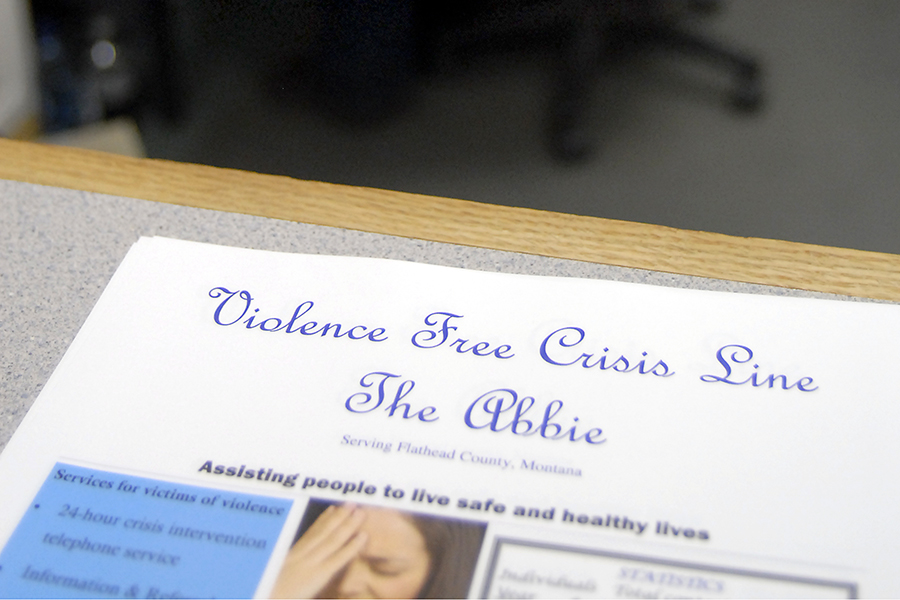Abbie Shelter Seeks Volunteers After Beginning Temporary Breaks in 24-Hour Helpline
An increase in demand and lack of volunteers has forced the domestic violence shelter to limit the hours of its full-time crisis phone line
By Denali Sagner
Due to a shortage in volunteers, the Abbie Shelter, a Kalispell-based non-profit that provides services to survivors of domestic violence and abuse, will begin temporary pauses in its 24-hour helpline.
The breaks in service will occur during the night and weekends –– approximately five to eight 12-hour shifts per month (out of 40) –– when the nonprofit is unable to find a volunteer to step in. Hillary Shaw, executive director of the Abbie Shelter, said that the decision to impose temporary breaks is due to a lack of volunteers and an increase in demand for domestic violence services. The shelter is actively seeking volunteers to join the helpline team in order to bring back the full-time service in the near future.
The Abbie Shelter was born in 1976 as the Kalispell Rape Crisis Line –– a grassroots, volunteer helpline that gave women in the Flathead Valley an anonymous outlet to seek support and speak openly, often for the very first time, about domestic abuse and sexual violence. The helpline’s founders, or “founding mothers,” as Shaw calls them, formed the crisis line in response to a national poll showing that 25 percent of women had experienced sexual violence in their lifetime, and that 90 percent of them were keeping their stories of abuse to themselves, not telling anyone.
In 1994, the Abbie Shelter opened in its current form –– a refuge for clients escaping domestic violence. It was named for Abigail Frederick, a Flathead Valley peace activist, poet and mother, who was killed riding her bicycle at 38 in 1991.
Now, the shelter offers an array of services to survivors –– court advocacy, counseling, shelter, safety planning and the on-demand helpline.
While the shelter’s 24-hour helpline is a key pillar of the services provided by the Abbie Shelter, Shaw said that operating the phone line without adequate staffing “put so much wear and tear” on the health and wellness of her volunteers and staff. Without sufficient volunteers stepping in, Abbie Shelter staff would be required to be on call multiple nights and weekends each month, an exhausting and often weighty task.
“This is not a unique issue. Domestic violence organizations all around the state are struggling to maintain their 24-hour hotlines,” Shaw said.
Shaw attributed the shortage to a decrease in volunteering since the pandemic, and an increase in demand for social services that has not abated. The Abbie Shelter has seen a more than 50% increase in need that has not waned in the post-pandemic era, including increased instances of possibly fatal domestic violence situations.
“The demand for our services has not returned to pre-pandemic levels,” Shaw said. “It’s not just the volume, it’s the level of danger that people are experiencing.”
In order to return the 24-hour helpline to its full strength, the Abbie Shelter is seeking eight to 10 volunteers to take one overnight or weekend shift every week. Volunteers can take calls on their cell phones, extensive training is provided and some compensation is available.
Though she acknowledged that people often feel intimidated by the prospect of volunteering with the helpline, Shaw emphasized the importance of having someone on the other end of the phone when survivors need it most.
“It just means that there’s someone there to listen,” she said. “That first phone call can be very scary. For many survivors, it’s the first time they’re telling anyone about the violence they’re experiencing.”
To learn more about volunteering, visit abbieshelter.org/volunteer, or contact [email protected].